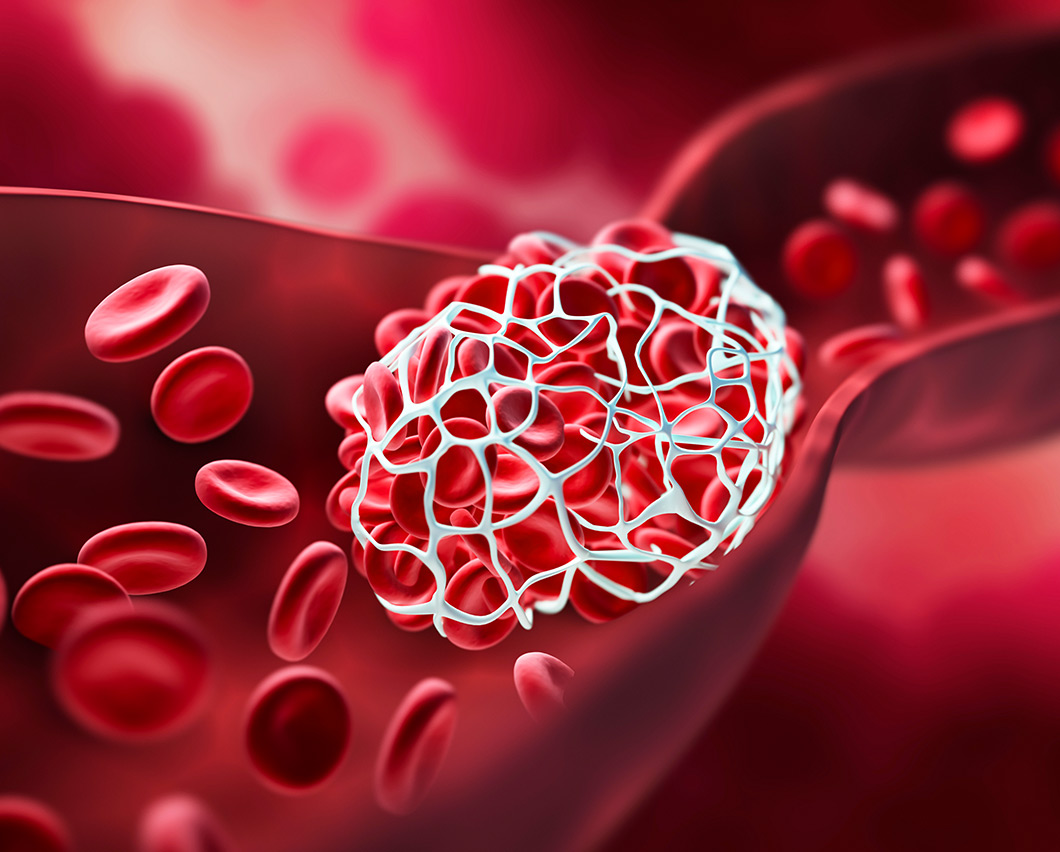Warfarin PGx

WARFARIN
Warfarin is one of the most widely used oral anticoagulant drugs and it is the most effective agent in preventing thrombotic disorders. Drug dosage should be carefully monitored in order to obtain maximum therapeutic benefits.
Warfarin efficacy is highly dependent on achieving and maintaining a narrow therapeutic window. Its use is associated with an increased risk of blood clot formation when treatment is subtherapeutic (INR of less than 2) or bleeding when supratherapeutic (INR of 4 or more). The pharmacogenetics study can be used to determine the optimal starting dose of warfarin.
Is the most widely used oral anticoagulant.
Is among the most effective agents in preventing thrombotic disorders.
Dosage should be carefully monitored in order to obtain maximum therapeutic benefits.
Warfarin Pharmacogenetics
The genotype of an individual is a major determinant to drug response and dose variability. In pharmacogenetics, genetic variants of CYP2C9 are associated with reduced enzyme activity and lower clearance rates of warfarin. Genetic variants of VKORC1 gene contribute to warfarin resistance and cause a significant difference in warfarin sensitivity index.
Benefits of genetic testing
By evaluating CYP2C9 and VKORC1 genetic variants, it is possible to:
- evaluate the patient response to warfarin
- prescribe an adequate dose
- avoid the adverse side-effects of non-optimal warfarin dosage
Genetic Panel
The genetic test evaluates genetic variants in CYP2C9 and VKORC1 genes. The genetic test evaluates all 18 possible haplotypes associated with warfarin metabolism. For example, the *2 and *3 alleles of CYP2C9 gene are responsible for a reduction in warfarin metabolism; the variant G-1639A in VKORC1 gene is a major determinant of variability in sensitivity to warfarin.
The variants from those genes have been approved by the FDA and also by the International Warfarin Pharmacogenomics Consortium to guide therapy.
-
Cytochrome P450, Family, Subfamily C, Polypeptide 9, is a member of the cytochrome P450 superfamily with a significant action in warfarin metabolism
-
Vitamine K Epoxide Reductase Complex, Subunit 1, encodes the Vitamin K-epoxide reductase, which catalyzes the conversion of vitamin K-epoxide into vitamin K
Warfarin and Hereditary Thrombophilia
Warfarin is the most effective anticoagulant to prevent thrombosis. It is used in the clinical context of hereditary thrombophilia.
International Guidelines AND DRUG LABEL ANNOTATIONS
The FDA-approved warfarin drug label provides a dosing table based on CYP2C9 and VKORC1 genotypes.
Also, the Clinical Pharmacogenetics Implementation Consortium (CPIC) of the National Institutes of Health Pharmacogenomics Research Network develops peer-reviewed gene-drug guidelines that are published and updated periodically based on new developments in the field [2,9].
Scientific Studies
[2] Kamali et al., Annual Review of Medicine 61, 63–75 (2010)
[3] Limdi et al., Blood 115, 3827–3834 (2010)
[4] Moyer et al., Mayo Clinic Proceedings 84, 1079–1094 (2009)
[5] Schwarz et al., The New England Journal of Medicine 358, 999–1008 (2008)